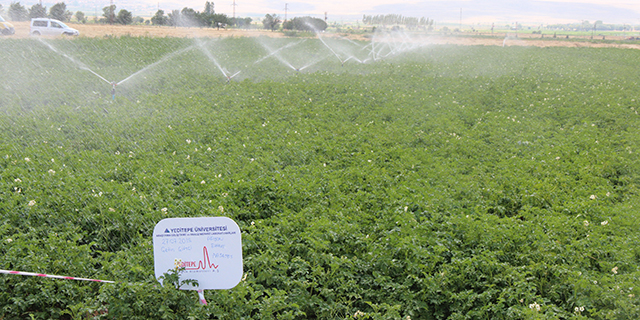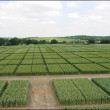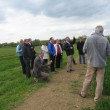The Most Successful Microbial Fertilizer from Yeditepe University
According to results of the research done within the scope of the “Rhibac Project”, for which the country coordinator is TÜBA Principle Member and Yeditepe University Genetics and Bio Engineering Department President Prof. Dr. Fikrettin Şahin, the bacteria strains developed by the Yeditepe University project team were the most successful among the microbial fertilizer preparations tested in the other countries.
Achieving maximum productivity and the best quality product from a unit area is one of the most important goals of producers in plant production. Nutrition and protection comprise the most important factors that control quality and productivity in plant production. A large amount of agricultural input (fertilizer and pesticides) is used currently to maintain and increase productivity and quality in plant production. However when such input is used excessively in plant production it can threaten human and environmental health. Therefore alternative plant nourishment and protection products instead of chemical input are urgently needed. This is why a number of scientists in different countries are conducting national and international studies to develop new alternative products and technologies to take the place of chemicals and provide for the relevant deficiencies in this field.
At a time when new and alternative products are being sought to lessen or remove the adverse effects of excessive synthetic fertilizers and chemicals on human health and ecological balance, the Yeditepe and Atatürk Universities have cooperated on scientific studies to achieve international acceptance in the international arena for the microbial fertilizer formulations they have developed and to compare their performance with equivalent products through a series of experiments in the scope of the European Union 6th Framework Programme (FP6) titled ‘STREP FP6-FOOD-CT-2006-036297; Rhizobacteria for reduced fertilizer inputs in wheat’ which was prepared by scientists from 8 different countries (Turkey, England, Germany, France, Belgium, Israel, Brazil, Chile) including Turkey. The ‘Rhibac Project’, for which TÜBA Principle Member and Yeditepe University Genetics and Bio Engineering Department President Prof. Dr. Fikrettin Şahin is the territorial coordinator, was completed in 2010 and the results were presented to the scientists of countries participating in the project as well as the press. According to the results of research done in the countries which participated in the project the most successful of the microbial fertilizer preparations that were tested were the bacterial strains developed by the Yeditepe University Project team. The microbial fertilizer formulations, for which commercial production was done by Bactogen Biyoteknolojik Ürünler San. ve Tic. A. Ş. and Yeditepe Sağlık Hizmetleri A. Ş. between 2013-2014 in Turkey (BACTOBOOST, BACTOGUARD, HUMANICA, LIFEPOWER, LIFEBAC-N, LIFEBAC-P and LIFEBAC-NP), have been registered by the Republic of Turkey Ministry of Food, Agriculture and Livestock and presented to the national and international market. Environmentally friendly and harmless to human health microbial fertilizers, which are an indispensible ingredient of organic farming throughout the whole world and an alternative product taking the place of chemical fertilizers in the sector for conventional and/or sustainable farming systems, are considered to be among the ingredients that will shape agricultural production in the future. While the Yeditepe University is presenting the microbial fertilizer formulations it has developed to date to the international market it also continues to develop new and more effective biological pesticides on its way to becoming a producer and international actor in the production of all ingredients required by organic and sustainable farming systems.



